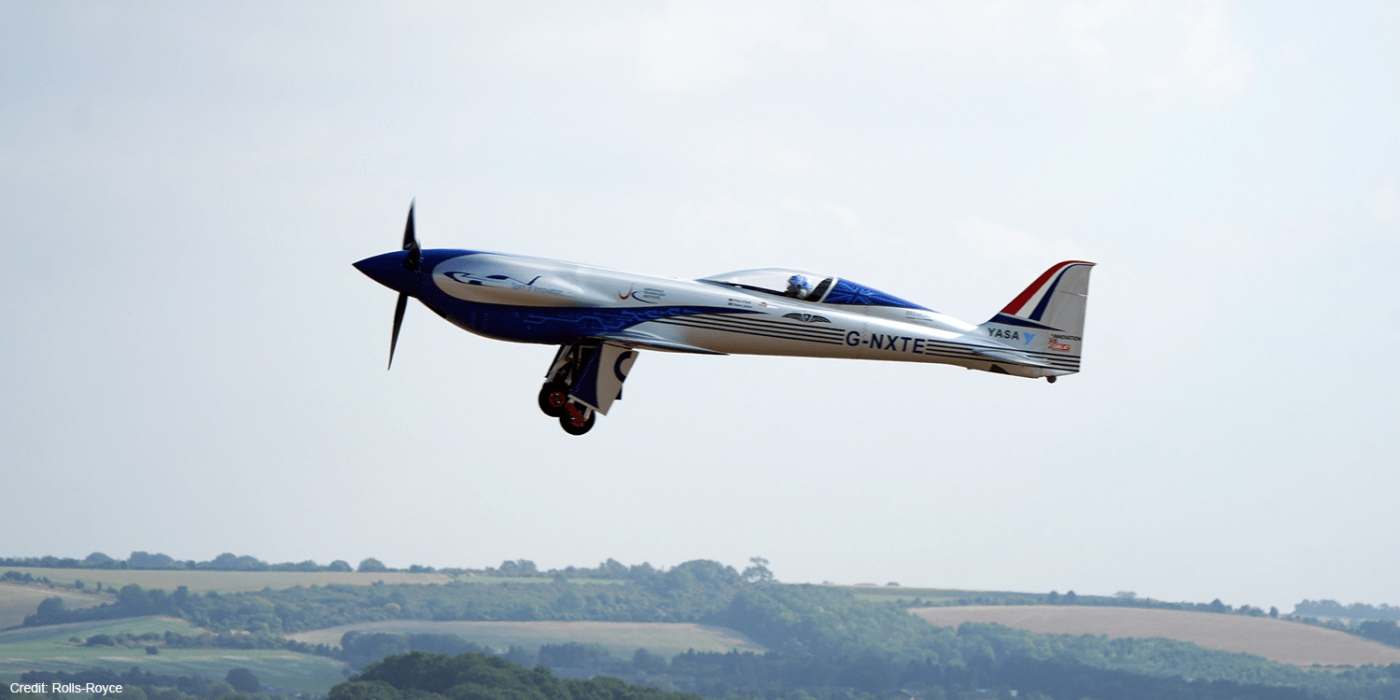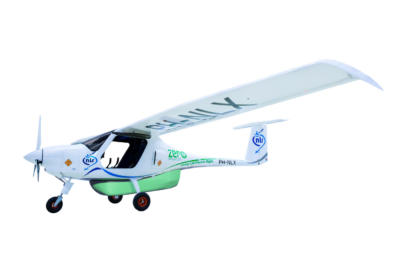Maiden flight for Rolls-Royce electric speed aircraft
The electric aircraft developed by Rolls-Royce for speed records has completed its maiden flight. The 367 kW machine named Spirit of Innovation took off from the UK Ministry of Defence’s Boscombe Down site and flew for about 15 minutes.
++ This article has been updated. Kindly continue reading below. ++
The initiators described the maiden flight as another step towards the aircraft’s world record attempt and on the aviation industry’s path to decarbonisation. However, Warren East, CEO of Rolls-Royce, emphasised that it was not just about breaking a world record: “The advanced battery and propulsion technology developed for this programme has exciting applications for the Urban Air Mobility market and can help make ‘jet zero’ a reality.”
The electric aeroplane, whose design Rolls-Royce unveiled earlier in late 2019, is part of the ACCEL initiative, short for Accelerating the Electrification of Flight. When the design was revealed, the record-breaking flight was to take place in “late spring 2020”. That was a little too ambitious. Rolls-Royce has not yet given a new date for the record attempt.
The propulsion system of the Spirit of Innovation consists of three axially arranged electric motors, which produce 367 kW combined. The propeller is to rotate at 2,400 revolutions per minute when the aircraft reaches the targeted speed of 300 miles per hour (480 km/h). The power comes from more than 6,000 cells, according to Rolls-Royce.
Rolls-Royce initially completed ground tests with the aircraft in October 2020. The “intensive flight test phase” following the maiden flight will collect valuable performance data on the electric power and propulsion system of the.
Other partners involved in the ACCEL programme are electric motor and control unit manufacturer Yasa and aviation start-up Electroflight. Half of the project funding is provided by the Aerospace Technology Institute (ATI) in collaboration with the Department for Business, Energy and Industrial Strategy and Innovate UK.
Rolls-Royce says it will use the technology from the ACCEL project in the future and apply it to products for new markets. The manufacturer says it already offers complete electric drive systems for eVTOLs or commuter aircraft. The British company says that the characteristics that air taxis require from batteries are very similar to those being developed for the Spirit of Innovation to enable it to reach speeds of 300+ mph (480+ km/h).
It was only in March that Rolls-Royce and aircraft designer Tecnam partnered with Norwegian regional airline Widerøe to bring an all-electric passenger aircraft into service by 2026. Rolls-Royce will supply the entire electric propulsion system for the new P-Volt plane, including an energy storage system. In June, the engine manufacturer also made public its intention to pump a total of £80 million (around €93.4 million) into the development of new energy storage systems for aviation by 2030.
Update 22 November 2021
A few months after its maiden flight, the Spirit of Innovation has set three records. According to Rolls-Royce, these are the top speed over three kilometres (555.9 km/h), over 15 kilometres (532.1 km/h) and the duration for the climb to 3,000 metres (202 seconds). At its peak, the Spirit of Innovation even briefly reached 623 km/h, Rolls-Royce said.
However, the company refers in the announcement to “our available data”, not certified record values. However, these still have to be officially confirmed by the international air sports federation Fédération Aéronautique Internationale (FAI).
Update 01 February 2022
The Fédération Aéronautique Internationale (FAI), the body that controls and certifies world aeronautical and astronautical records, has acknowledged two of three records broken by the Spirit of Innovation, the all-electric plane made by Rolls-Royce.
To recapture, at 15.45 (GMT) on 16 November 2021, the aircraft reached a top speed of 555.9 km/h (345.4 mph) over 3 kilometres, smashing the existing record by 213.04 km/h (132mph). In further runs at the UK Ministry of Defence’s Boscombe Down aircraft testing site, the aircraft achieved 532.1km/h (330 mph) over 15 kilometres – 292.8km/h (182 mph), breaking its previous record. The FAI has officially verified both records.
Rolls-Royce claims that the aircraft also clocked up a maximum top speed of 623km/h (387.4mph) during its record-breaking runs, making it the world’s fastest all-electric vehicle, but has not mentioned any verification of the alleged record. The same is true for the quickest climb, which also appears to await acknowledgement still.
Rolls-Royce designed the Spirit of Innovation as a record-breaking machine from the ground up to showcase the technology’s power. It is part of the Government-backed ‘Accelerating the Electrification of Flight’ (ACCEL) project.
Business Secretary Kwasi Kwarteng said: “This record will show the potential of electric flight and help to unlock the technologies that could make it part of everyday life.”
rolls-royce.com, rolls-royce.com (update Nov ’21), rolls-royce.com (update Feb ’22)





0 Comments